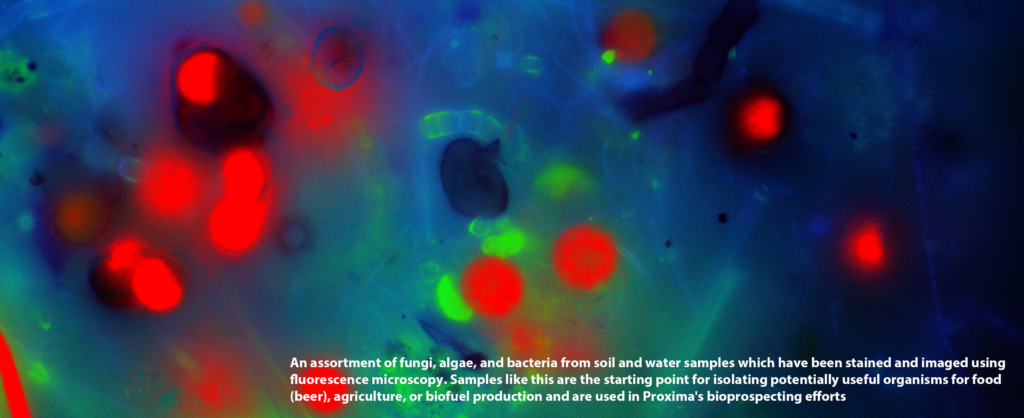
“We like to tell clients, ‘don’t ask us what we do; we want to know what you do,’” says Zach Belak, a co-founder of Proxima Research and Development. “Usually, we can help with whatever they’re trying to do, and we can do it more economically than they would be able to do internally,” he adds. “We look at it as providing support and being part of the ecosystem.”
Proxima is a small contract research company. While they specialize in applied biotechnology, within that they provide more general services to academic and industrial clients who typically don’t participate in the contract research space due to scale or cost concerns. In their first two years in business, they’ve worked with pharmaceutical companies, government organizations, academic labs, other startups, and small and medium enterprises.
Belak and his business partner, Proxima co-founder Iain Wallace, have scientific experience in academic, industrial, biomedical, and consulting environments. They met when they worked together at a pharmaceutical company.
In the wake of the pandemic, Belak says they were looking for more autonomy. “In science, typically it’s a couple years, or even a couple months, and you’re on to the next project. So, we thought, if we’re going to be doing all kinds of different things all the time, we might as well do it under our own purview. Let’s turn that into a business.”
Wallace notes that “not everyone can be a generalist, not everyone has the unique fusion of experiences that Belak and I and our scientists have. I think our core competency is the know-how, the toolbox we’ve assembled over our careers and how we can apply that to whatever problem our clients come to us with.”
When they’re not working with clients, they also pursue some of their own R&D. For example, they’re working on a bioprospecting project looking at yeast. “That’s where you go out and take environmental samples to isolate different interesting microbes from them and explore how those might be useful in different applications. In Saskatchewan, brewing and biofuels are both very relevant applications,” explains Belak. “We’re the only company doing bioprospecting in Saskatchewan.”
That kind of innovation is exactly what they had in mind when they named their company. Proxima means ‘next’ or ‘close by’ in Latin. “It’s meant to convey the idea that the next great technology, the next great thing that’s going to improve our lives, is what we’re working on,” explains Belak.
It’s also a reference to proximity and Saskatchewan-made solutions. While they have clients as far away as Mexico, most are close to home.
“For what we do, supporting crop development and value-added agriculture, this is actually a very important place to be. A lot of the types of clients we serve are located here,” says Belak.
“It’s a hotbed of biotech and especially ag biotech,” adds Wallace.
When you’re starting out, especially when you have a unique business model, it helps to have someone in your corner. Belak and Wallace say they’ve found that support at Ag-West Bio.
Wallace had been impressed with the professional connections he was able to make through Ag-West Bio when he moved to Saskatoon. “I met Ag-West Bio as someone who was job hunting. I went to one of their mixers and met people who were on the executive level and all the way down,” he says. “The calibre of people I met was really high, and they were very friendly and open.”
So, Ag-West Bio seemed like a natural place for Belak and Wallace to make connections on behalf of their new company. “They’ve really lived up to their mandate of helping us get connected with the local biotech ecosystem,” says Belak. “They’ve been really great at connecting us with potential clients, collaborators, and mentors.”
Wallace and Belak are excited about the changes they are seeing in the ag biotech industry in Saskatchewan and their place in it. “Saskatoon has a long history in ag biotech, but it feels like things are changing in a very positive way,” says Wallace.
“It’s kind of strange that we were the first to think of doing medium- to small-scale contract research here, but the reaction from our customers and collaborators has been really positive. We are just what they needed, but without anyone realizing there was a need.”
Top photo credit: Zach Belak
This article is from Ag-West Bio’s 2022-23 Annual Report.
Contact us if you would like a printed copy
